 2. Reverence
2. Reverence
Two more Reverence videos are pending. . .
Welcome to the Resolving the Debates reverence page. Reverence is a fundamentally important value on which the resolution of the great issues of our time hinge because it is apparently the value where our species needs to meet in order to form the social contract that will be most likely to succeed.
On this page please consider how modern science, and our modern cosmology in particular, has provided humanity in the last five hundred years with new data about our existential position in the universe.

Martin Luther, 1483-1546 -Righteous fellow in his time and place, but also,sadly, misogynist and anti-Semitic shill for the supposed 'Master' Race.
As Martin Luther hammered his 95 thesis’s on the door of the Church in Wittenburg, confronting the hypocrisy of the Catholic Church and sparking the reformation, so this blog page has 30 thesis’s concerning reverence.
Thesis #1a (This blogger’s passion): Have you ever watched a blockbuster Hollywood movie and marveled, even been proud of your species, because of the phenomenal quality of the acting, cinematography, directing, special effects, and budget, but been appalled at the simple juvenile nature of the theme and plot? That tendency, of humanity thus far in general, and for Americans (my country) in particular, to be practically and technologically competent but abstractly and ethically incompetent, is I believe the crux of our difficulty. Agreeing to found our social contract at acting on revering the gift the gift of existence in this reality will likely create the gracefully sustainable reasonable behavior that will get the “plot” of individual human, and society’s cultural, life progression up to and beyond the quality of our technological advances.
And NOW:
Thesis #1b: Reverence for the core ‘gift’ attributed to ‘God, or ‘ultimate’ reality’ (the ‘gift’ of all that you/we feel is awesome, good, beautiful and true about this reality of which we are but a part), is the primary point where agreement among humans needs to occur to create the most workable ethical system. -
Why:
Thesis #2: Deep unity is generally needed to resolve deep disagreements. And the deepest unity generally arises from finding agreement on the deepest level.
Thesis #3: When one understands that socially and ethically it ultimately makes little difference whether one uses the words in italics in thesis #1b literally or metaphorically then thesis #1b is the deepest level. And when thus understood thesis #1b stands a great, probably the best, chance to work to unify humans of all cultures and belief systems including atheists, secular scientists, religious community’s, spiritual individualists, and zealous ‘fundamentalists (but excepting pure nihilists). Thesis #1b charts the path to a universal ethical system (the Rose Mandala) that may work to create a gracefully sustainable civilization. . .
Thesis #4: Awareness and acceptance of thesis #1b should not be seen as a foundation for an ethical system. Because that awareness and acceptance cannot be expected to occur for anyone in a flash of insight (although that is possible). Rather, awareness and acceptance will generally follow a cyclical spiraling dialectical path as shown by the Rose Mandala.
Thesis #5: Revering this physical reality sensually and perceptually and revering the creative process and functional results of intellectual cognitive models of reality created with observation, and inductive and deductive reason, is the most logical (see Finite and Relative), next subset value on the path from accepting and loving ‘God’ generally to determining what precisely we should be doing (ethically) specifically. Again, see the Rose Mandala.
Thesis #6: It is the fearful, and ultimately unfaithful (I say this with compassion, honestly), desires of the mal-adapted human ego which causes both the lost among the ‘atheists’ and the ‘fundamentalists’ to need to primarily define, prove or disprove, and justify or refute ‘God’ - via: (a.) prioritizing belief in ‘God’s’ human-like sentience and humanity focused benevolent omnipresence, and/or (b.) miracles that are for humanity’s benefit or faith, as opposed to, say, focusing on the unifying part of the definition of ‘God’ that is the ‘miracle’ or transcendent mystery of why ultimately realty exists, i.e. why there is something rather then nothing.
Thesis #6b: If one does not revere that which humans can know as God’s greatest attribute (reality) (of which all of humanity (and all of our works, culture , and religion) is but an infinitesimal part) then one does not really revere God by any definition.
Thesis #6c: If one has not been able to know and therefore believe in a theistic or deistic God, but one still reveres reality then, if there is a sentient God, then one is still revering him/her/it most essentially through his greatest known creation; that is unless ‘God’ is jealous and petty, wanting to be loved for himself (whatever that is), by infinitesimally small humanity, more than for his great work (this cosmic realty); in which case ‘God’ would not be very Godlike.
If there is not a sentient God,but one still Pantheistic-ally revers reality, then one is still, logically, revering that which is greatest and most important.
Thesis #7: The ‘data’ of modern cosmology (since Hubble in the 1920 proved that many ‘nebula’s’ were actually Galaxies of hundreds of billions of stars) shows that ‘objective reality’ is, in an overwhelming humbling fashion, ‘God’s’ greatest known attribute because now we have a profound new and better idea of how proportionately vast the rest of this cosmic physical reality is relative to this earth, it’s history, and all other human concerns.
Nice video on how future intersteller traval might actually happen, Here
Size of universe in 3D! Here
Thesis #8: Therefore a willful lack of awareness or indifference to the significance of cosmology is irreverent. And, incidentally, indifference to the related beauty and elegance of the universe spanning laws of modern physics is also irreverent). It logically remains irreverent (in terms of value because reality contains everything one could value) no matter (at all) if one is a theist, polytheist, deist, pantheist, or atheist.

Thesis #9: Lack of reverence for the reality of modern cosmology (you could call it the modern ‘revelation’) relative to focusing existentially more on one’s own tiny egotistical fear of death, or suffering, or the desire for immortality, is understandable, but it’s still irreverent.
*
Time for a brief rather tangential poetry & video break. – Did you know that this poem:
“The same stream of life that runs through my veins night and day
runs through the world and dances in rhythmic measures.
It is the same life that shoots in joy through the dust of the earth
in numberless blades of grass
and breaks into tumultuous waves of leaves and flowers.
It is the same life that is rocked in the ocean-cradle of birth
and of death, in ebb and in flow.
I feel my limbs are made glorious by the touch of this world of life.
And my pride is from the life-throb of ages dancing in my blood this moment.”
called ‘Stream of Life,’ by Rabindranath Tagore, and sung rather enchantingly by this young woman (Palbasha Siddique),
 and danced consciously (but not particularly self consciously, as you may have seen) by Matt Harding in his famous YouTube video, viewed thus far by over 46 million people, (here)?
and danced consciously (but not particularly self consciously, as you may have seen) by Matt Harding in his famous YouTube video, viewed thus far by over 46 million people, (here)? To Continue,
Thesis #10: Reverence for “God”, most essentially manifested, experienced, or defined through reality, does not imply or require dogmatism, rather the reverse.
Thesis #11: Revering “sacred” texts (such as the Bible, the Koran, the Vedic Scriptures, the Tao Te Ching, etc.) is surely generally fine, but if that reverence conflicts logically with reverence for the larger, grander, more magnificent, more reasonable and mysterious reality (that consists of hundreds of billions of galaxies and extends beyond the known), and one clings to demonstrably false parts of a “sacred” text essentially simply because it may elevate the ego, enlarging the position of humanity higher in the cosmos then we now empirically know it to be, then that, honestly, is blasphemous idolatry – regarding that text in it’s relationship to “God”, (<These are strong words, but they are based on an appeal to empirical evidence, not authority. Existentially authoritarianism, we now more or less know, is trumped by empiricism. So we should now provide realistic arguments and real sensual evidence. And, if correct, empiricism should be more sufficient to bring human minds to unity then any form of authoritarian physical or emotional coercion.)
Thesis #12: It is interesting to note that (as a lesser example than cosmology) the billion year history of the evolution of life on earth does not do away with or belittle the essential and grandest part of the definition of “God”. Rather the reverse; “God” is elevated by the increased complexity, majesty, and age of reality over that which is typically described by sacred texts. It is man which is humbled. Unless one is conflating, idolatrous-ly, man with “God” then the modern understanding of evolution, like cosmology, should via humility increase our reverence for God.
Thesis #13: Monotheism has been a cornerstone of western civilization in large part because the concept of ‘one God’ has been recognized as a unifying force that extends beyond our tribal psychology. Humanity’s other major civilizations have historically found less savory methods to create deep unity: for examples, India and Japan practiced rather repressive cast systems, and in order to avoid chaos China’s emperors have a long history of repression, claiming the “mandate of heaven”. Nowadays there is fair worldwide implicit recognition of the benefits of a unified world view based on Science. And it is the ‘holy grail’ quest of scientists to tie their deepest physical theories about reality (Relativity and Quantum Physics) together under one unified theory. But, although there is a fair amount of worldwide unity there is not enough; there is widespread recognition that various crises seem to be keeping our civilization on the brink of destruction, but there is massive disagreement about what to do about it. . . A new, more enlightened and broadly defined monotheism is almost certainly the best solution. Because:
Thesis #14: Unified reverence is the primary, and first, point where agreement needs to occur subjectively, at the top of the Rose Mandala, such that humanity can find the ‘objective’ all inclusive system of ethics that flows down the Mandala’s right hand side. With enough reverence humans in civilization can find a course that works better than any ethical course our civilization’s have thus far followed because humans will hopefully, consciously, and for the first time, begin to accept and live by the meaning of life as defined (discovered via science) by a religion and or philosophy that is non-dogmatically informed, by science.
Thesis #14 redux: Excepting, fully, the gift of this existence, and honoring the gift, is the most productive starting point for ‘objective’ social agreement on a universal human code of ethics; as is shown on the right side of the Rose Mandala. To put it simply, accepting the gift of existence means agreeing to live by the ‘rules of existence,’ the laws of physics, and the rules of being part of life on earth within and subservient to those rules, and the rules of human physiology within and subservient to those. Down to yourself and the rule of the ego (the pursuit of happiness). The major point that virtually all of humanity has thus far missed is that the ‘rules of life’ (which life forms need to follow in order to not die prematurely or go extinct) meta-ethically directly precede the pursuit of happiness, and this is the core here-to-fore unidentified dynamic behind the peril that perhaps most of humanity senses that our civilization is in. Again, see the Rose Mandala.
Thesis #15:
Atheist demagogues such as Richard Dawkins, Sam Harris, and Christopher Hitchens are being disingenuous and socially unproductive when they attack religion without sincerely acknowledging the profound validity of humanity’s need for social institutions that, articulate coherent worldviews, develop rituals that connect people to deep Meaning, and advocate for a workable ethics. That is the legitimate task of religion.
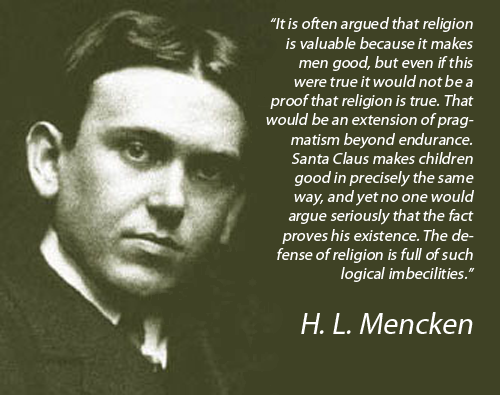 Thesis #16: However, those who are committed to the pragmatic value of scientific objectivity correctly point out that truth is not contingent on human need.
Thesis #16: However, those who are committed to the pragmatic value of scientific objectivity correctly point out that truth is not contingent on human need.
In short: if it is true that life is meaningless and ethics are subjectively arbitrary, then it remains true, whether that serves human needs and desires or not. >>
Thesis #17: The knowledge modern science (developed around 500 years ago), and scientists, have given humanity is a great blessing because it can humble us, and allow us to connect more easily to the greater meaning which can transcend the cravings of our often out of balance egos.
Thesis #18 It is profoundly reasonable (though somewhat radical) to propose that in the current ‘culture wars’ the supernatural theist versus naturalistic atheist, and the spiritual versus religious, debates are simply irrelevant red herrings that obscure the deeper issue behind those debates. It is reasonable because it is pragmatic to say that the deeper issue for humanity, and particularly modern humanity, is: how do our egos, infinitesimally small motes that they are, find balance in the vastness of this reality by connecting to it such that they can find a Meaningful path to: likely survival of our own genes, our species, a graceful civilization, vastly increased personal happiness, a general sense of personal ‘redemption’ or ‘enlightenment,’ and ‘God’ – most broadly defined as that which is great awesome and beautiful within, and or behind, and or beyond the totality of this reality. The simple answer to that “how do” question is: cultivate reverence.
Thesis #18: Religions fall into irreverence, idolatry, and blasphemy when they come under the tribalistic agendas of Paltrorks. Paltrorks has influenced the creation and maintenance of virtually all of modern civilization’s major religions, and paltrorks dominated religion is often called ‘fundamentalist’ religion which is the opposite of the truth. Paltrorks focuses on inflating the ego, control for status, and power through fear. It is objectively observable that religions that work (to attain the goals set forth in thesis #1) are deeply, even mythical, egalitarian social vehicles for transcendent ecstatic connection through humility.
Thesis #19: What do these Quotes by purported central figures of the world’s major religions indicate concerning perhaps the core archetypal need of the human psyche? Jesus – , Muhammad -, Buddha – , Lao Tsa - , Krishna (or a historic ?Brahman?),
Thesis #20: Reverence should be the emotional or ‘spiritual’ force that drives us as individuals to deeply accept the ‘gift’ of existence in this reality and the necessary actions in this life that acceptance implies.
Thesis #21: The North American plains Indians (among others) have correctly pointed out (and this is paraphrasing) that psychologically our view of reality emotionally or ‘spiritually’ tends to be a mirror, or projection, of our view of ourselves. So, as a human is it not true that you would be most honored by being loved primarily for that sum total of all that is good and beautiful about what you are and have done? You would not feel as honored for only being loved simply for what you have given those who love you. Nor would you feel as honored if you were loved just because you want or need to be loved. Likewise, as a mirror corollary, the thing that should be most revered about ‘God’ is not that ‘God’ narrowly, ‘selfishly,’ wants or needs it, nor is it your self serving desire to acquire any specific personal gift as a sort of ‘trade’ with ‘God.’ Rather that which it makes most sense to revere is the grand ‘gift’ which is the awesome transcendent beauty of this reality, which extends cosmically, astronomically, beyond tiny humanity through all space and time.
Thesis #22: It is thoroughly possible, though not necessarily probable, for an atheist to be more reverent then a ‘Christian,’ Muslim,’ or other theist; that is to say reverent to the most important part of any serious conception of God.
Thesis #23: The unifying concept of God can be a, perhaps the, most profound rallying point for social unity, leading from reverence for the gift of existence in this reality to a common desire to live in accordance with the laws of this reality.
Thesis #24: Yet another way to say it: When one contemplates God non egotistically (as in non-self-serving (which, incidentally, all major religions correctly say you are supposed to do)), the central part of what defines God is: that focus of mystery which is transcendentally awe (or humility) inspiring ‘behind or beyond’ what is known and knowable in this universe or reality.
Thesis #25: For Christendom and those secular citizens of the West: The transition of believing (when one is a child) in Santa as a red clothed elf who lives at the north pole and gives out toys, to believing Santa is a cruel sham (as an older child), to the common behavior of espousing and believing Santa is the ‘spirit’ of giving (as an adult, and parent), really believing in Santa, in his more important metaphorical essence, and transferring that belief onward to innocent children (including one’s own children), is an excellent metaphor for enlightened ‘spiritual’ growth in the conception of God.
Thesis #26: The God ego dialectic:
Thesis #27: The real dialectic isn’t between believers and atheists, or christian and Muslims, or socialists and capitalists, its between pantheists /> humanists />egoists. Even though “scientific’ pantheists and secular humanists are fairly similar in their stated manifestos the words matter because they are heavy, fraught with meaning, and worldviews turn on them. I would like to show a diagram of similarities and differences of different belief systems, individuals, and cultures in terms of the Pan Hum dialectic. (examples: objectivists, Catholics, Tolkien, Carl Sagan, Hitler, Jesus etc. ect.
Pantheistic theists > humanistic theists > egoistic theists, or, pantheistic atheists > humanistic atheists > egoistic atheists. One could argue that true ‘faith,’ being redeemed, arises with the deep spiritual or emotional awareness that being alive, getting a chance to experience the awesome, beautiful, mysterious, and reasonable nature of this reality is such a magnificent ‘gift’ that it hardly matters at all weather ‘god’ is sentient and omnipotent (as to whether or not he/she or IT deserves our love), and therefore is there to love us. The main gift has already been given. Eternal life or nirvana, or even carnal pleasures such as getting rich, may be great things, but craving for them such that one doesn’t care otherwise to fully commit to loving ‘God’ back, when one already has got to experience life and existence, smacks of egoism and irreverence no matter how you believe ‘God’ to be or not be. When on realizes this, one truly realizes that the atheist / theist debate isn’t the important one. It is the pantheist /egoist ‘debate’ that should be held. And when it is honestly held egoism will always lose because it is common sense that our egos are insignificant to the point of irrelevance in the face of the cosmos of which they are already a part anyway. . .
Thesis #28: The successes of relatively atheistic societies like current Sweden versus dysfunctional Theistic societies like current Pakistan. Can be contrasted with dysfunctional atheistic societies like atheistic Pol Pot’s Cambodia versus Theistic Costa Rica. The probable reason for Sweden’s current success has more to do with their integration of the more benevolent aspects of tribalism (they are a close knit uniformly cultural society) than it does with their atheism. And it may be that their ‘atheism’ is more humbly reverential to a broad definition of God, then other societies with a more irreverent or idolatrous narrow egotistic definition of God.
Thesis #29: Religious tolerance is a classic liberal value which has undoubtedly prevented many wars, and tolerance should certainly still be cultivated. A primary way tolerance should be cultivated is to actively find other ways then authority to resolve crucial differences, particularly other ways than the authority of government force. However, when certain ‘faiths’ can reasonably be shown to be contributing to the impending destruction of our civilization and the consequent possible death of billions of humans, the extinction of millions of species, and the possible eventual extinction of our own species then surely if it can be shown empirically that that faith is inconsistent with it’s own principle of being reverent then it would be the duty of anyone who claims to be at least trying to revere this reality to speak up. The value of tolerance is a great one, but surely it is not unduly compromised if one simply uses reason, empirical observation, and an appeal to non-ego-based reverence to prevent a cataclysm.
Thesis #30: Finding one’s ‘faith,’ in essence is the process of integrating or connecting the self to God such that one, increasingly can tap into an inner ‘spiritual’ strength to deal with the vicissitudes of living. Surely we can say that as a conscious life form it is a natural process of growth towards ‘wisdom’ that psychologically can be mapped and better understood on the marvelous Native American medicine wheel (see the meaning of life) or the Rose Mandala. The process can also be helped by social institutions, but ultimately it is between one’self’ and’God:’
Is this chance at existence that we have ‘been given,’ metaphorically or otherwise, great enough that we want to love this life and that mystery that exists beyond existence? Or does pain, suffering, and the possible (or even probable) ultimate existential meaninglessness of life so weigh us down, that we choose to only half live, to not give our love, or to not live at all?
check out the scale of the universe: here
*
*
*
*
*
*
*
*
*
*
*
Non-’thesis based,’ perhaps redundant, discussions: you may want to check out the other Great Issues and related posts before Proceeding. . . –
When laying out a (or the) worldview that will hopefully resolve humanity’s most intractable debates the subject of Reverence is as good a place to start as any. Why?
A. Because reverence provides the most functional answer to the philosopher Albert Camus’ famous question: “There is but one truly serious philosophical problem, and that is suicide. Judging whether life is or is not worth living amounts to answering the fundamental question of philosophy.”
B. Because when you follow your own spiritual path diligently if you are like most humans you will probably end up agreeing that reverence for the mystery at the root of this finite and profoundly knowable natural reality is the key to your, and humanity’s, happiness.
C. Because the impending survival of our civilization and perhaps even our species depends on reverence. See Link.
This physical reality, whether it is the only reality or not, is a consistently a pretty strong reminder that you and me are small very mortal motes in a profoundly vast cosmos. Hence to find Meaning in this life we have an archetypal need to connect to something ‘transcendentally’ larger then our own small egos. In order to understand one another let’s agree to call that ‘something’ ‘God.’
This very broad and inclusive definition of God is then the foundation for discussing reverence.
*****
Have you ever seen the old movie, ‘The Miracle on 34th Street?’
You might not say it’s a great work of art, but it is an excellent parable: Chris Crinkle comes to New York in 1947 and ends up being arrested as crazy. The movie challenges the audience: is the old grey bearded man Santa or is’nt he? And does it matter? Is Santa really a red suited elf/saint who rides through the sky in a sleigh giving toys to all the world’s children or is Santa just the ‘spirit’ of giving? Which ultimately is more important? Is it really wrong being atheistic about Santa particularly to children? Is it fair and moral to allow space for the possibility of a little magic in this reality? The movie’s answer seems to be that children need and love pretend Majic and mystery so that they can grow into adults that appreciate such subtle real ‘Magical mysteries’ as the spirit of giving.
Can’t we revere those aspects of this reality that are so awesome and ‘magical’ that whether or not there is a supernatural element to it is actually irrelevant? That insight is the key to resolving perhaps the most important debate of all: the nature and ultimate existence of GOD. . .
This reality that we live in is wonderfully functionally knowable. Einstein famously said, “The eternal mystery of the world is it’s comprehensibility.” The equations that describe the physical world are often steeped in beautiful elegance. But ultimately the universe is still grounded in mystery. The known universe is that which we can see with telescopes due to the light that has traveled through time and space since the big bang. Thirteen billion light years in radius around us. This ‘known’ universe has hundreds of billions of Galaxies, on average each galaxy contains hundreds of billions of stars; a vast percentage of which we now know are circled by planets. A finite and therefore ‘knowable’ number of planets to be sure, but an awesome astronomical number none the less. And what is behind and beyond the known universe? Why is there something rather then nothing at all? Einstein famously said, “The eternal mystery of the world is it’s comprehensibility.” Such is the humbling basis of reverence. In the shadow of our new found cosmic knowledge the debates on the existence of God sound like the atheistic nine year old versus theistic five year old debating Santa’s existence. The five year old need to be given to, need the toys, the nine year old unbeliever is grappling with the adult truth that he needs to evolve towards becoming part of the spirit of giving. That the spirit of giving really is more profound any way then the elf, but it involves his giving participation.
versus smll of the debate. Scientists have shown us this
Coming to an agreement, as a species, about who or what we should revere is probably the key to resolving humanity’s core debates. After all, that which we truly revere is that which we orient our lives around, and if we can essentially agree on what we should orient our lives around then all the rest is just details.
Or you could not. . . I refer primarily to relevant reverence debates between theists and atheists. There is also the primacy of the supernatural versus primacy of the natural worldviews, and the spiritual versus the religious take being reverent.
If we are to ‘resolve the debate’ then whatever your perspective on the word please challenge yourself to be open to looking at all ‘sides’ of the current debates and beyond, and then give as honest an assessment as you can of their respective merits.
By definition it is that which we revere and hold sacred that holds the most obvious source of meaning, and therefore value, in human life.
So, wouldn’t it be true that the deepest most profound way to resolve debates would be to find agreement on a single central concept that we all could, and should, revere? But there is an obvious problem: People can’t agree on which central concept to revere. Commonly they tend to think of that which is revered by those outside of their own group as false, superficial, or simple superstition.
For most of humanity the obvious central concept is, God.
Now It is common knowledge that it is acceptable to use a word if one of the definitions applies to the concept you are trying to communicate. And it happens that the most morally important, most socially useful, and broadest part of the definition of God is one that virtually everyone, even atheists, can believe in, and the traditional theist would do well to abide by it if they truly wish to love God and not commit idolatry towards themselves.
What definition of God am I referring to?
God is: that which a fully conscious human worships, or revers, most about reality.
But there is a lot of disagreement about the nature of God; for instance there is the Christian version, the Islamic version, and the Hindu version(s). Of course an even bigger problem would appear to be that there is a significant minority of the earth’s populace who, are agnostic, or don’t believe in God at all, and what’s more many of those people, and cultures function quite well. For example the majority of Swedes don’t believe in God, and pols show they have some of the worlds lowest, crime and poverty rates; they also pol as some of the world’s happiest, healthiest, most educated, long lived people.
Does this mean ‘God’ isn’t the unifying concept we are looking for?
Perhaps, but what if we agreed, for the moment, to forget about all the disagreements we humans have about what God is, how loaded the word ‘God’ is, and even if ‘God’ exists, and we simply open our minds to look at the definition of ‘God’.
Notice that the part of mere mortals such as ourselves is to find ‘God’ so important as to be worthy of worship, reverence. Now, what if ‘God’ is: that which a fully conscious human worships, or revers, most about reality, and I’m not using the word reality lightly. Next, what is it about God that is worthy of reverence. Many, perhaps most, theist revere God for what he offers them personally, what they can get out of God: gifts, justice, immortality. . . If you worship God he give you stuff back. This does not seem like real reverence. Real reverence, or love, is not about trading its about finding the object of love so worthy that your only concern is to give. And that’s what can tie the differing views about God together. This isn’t just about semantics. In many ways it’s the essential thing for humanity to get right in this reality; because what is it about any definition of God that is most worthy of Love and reverence beyond calculating trading of such things as ‘accepting Jesus’ sacrifice’ for a ticket to heaven? The most worthy thing is the awesome nature of this reality. This mysterious glory of the know universe extends far beyond the selfish wants of the individual human ego, and is a thing most worthy of reverence whether you are a ‘saved’ southern baptist, a devout Shiite Muslim, a Chinese Taoist, some one who venerates Ganesha, or an atheist.
So again, unselfishly, what if ’God’ is: that which a fully conscious human worships, or revers, most about reality?
Think about how useful that would be: instead of Christians, Muslims, Hindus, ‘Atheists,’ pantheists, humanists, or hedonists arguing
choose to call the desired central concept mentioned above, God. Now lets look at a couple of other other loaded words: ‘Reality’, and ‘Love.’ What if, for the sake of the desired agreement underlined in red above, almost all of us humans could come together at least this much on the definition of God: ”God is that which we love most about, or underlies our love of, reality” . . ?
What is reality? Think of your personal day to day reality, then think about the fact that you live in the universe. Then think about what modern science, epitomized by the Hubble telescope, has told us about the universe.
With that in mind, and to stir things up, I’d like to ask you to think about the following sentiment (in purple text) expressed by my old astronomy professor:
“This rather long but incendiary sentence should be plastered on billboards all across the United States:
‘It’s blasphemous, irreverent, and rankly idolatrous to any reasonable conception of God for the ‘truths’ of a mere 2 thousand year old book on the mote that is this earth to trump obvious observable truths in nature; the ‘known’ part of which is over 13 billion years old and consists of at least several hundred billion galaxies each containing an average of hundreds of billions of stars, trailing untold myriad planets.‘
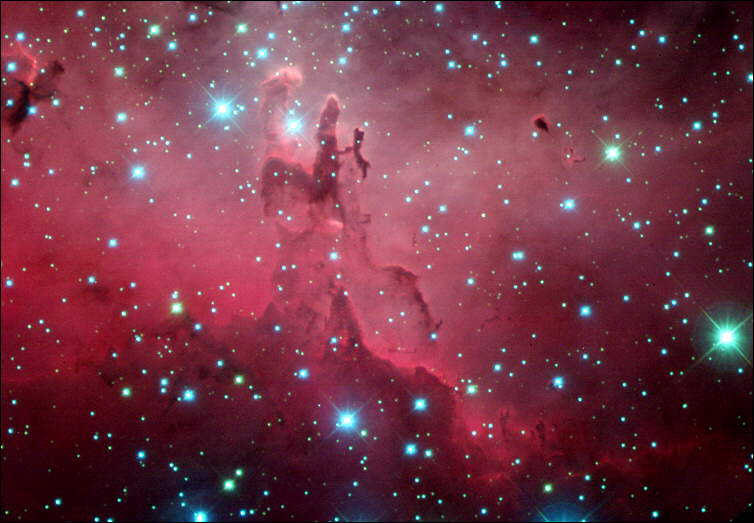 The Bible itself is innocent enough, considering its primitive origins. But it’s profoundly parochial ignorance becomes obvious on it’s very first page, Genesis 1, where the earth, it’s oceans, all the earth’s plant life, the sun, and the moon, are created before the stars. Obviously and understandably, to ancients who created the book of Genesis, the stars were nothing more then insignificant points of light in the “vault of heaven,” and hence were created as a kind of afterthought on the fourth day. But now we know otherwise about the stars, and the ironically named ’religious fundamentalists’ need to be constantly reminded that they are being fundamentally irreverent by ignoring the truth and it’s implications about the human situation.”
The Bible itself is innocent enough, considering its primitive origins. But it’s profoundly parochial ignorance becomes obvious on it’s very first page, Genesis 1, where the earth, it’s oceans, all the earth’s plant life, the sun, and the moon, are created before the stars. Obviously and understandably, to ancients who created the book of Genesis, the stars were nothing more then insignificant points of light in the “vault of heaven,” and hence were created as a kind of afterthought on the fourth day. But now we know otherwise about the stars, and the ironically named ’religious fundamentalists’ need to be constantly reminded that they are being fundamentally irreverent by ignoring the truth and it’s implications about the human situation.”
I tend to agree with my old professor. From a reverential perspective the difference in scale, between this earth and the universe, does seem significant to me. Having said that. . .
A lot of atheists make the point that believing in God is like believing in Santa Claus, and a lot of ‘fundamentalist’ get upset. My advice is both ‘sides’ should be willing to lighten up and look a little deeper into the ‘Santa analogy.’
What about the old movie, ‘Miracle on 34th Street’? I’ve had children, and I believe in Santa. There are three phases of Santa belief:
First, from ages three to about seven you really think Santa is ‘real,’ lives at the north pole, drives a sleigh, and gives you presents. < ‘fundamentalism’
Second, in healthy smart children from age eight to. . ., it depends, you may be resentful that you were fooled, and often angry that now you have to grow up, and are supposed to enjoy giving more than receiving. < skepticism
Third, you grow in wisdom, and really enjoy giving because you are comfortably filled with gratitude about the ‘gift’ of simply being alive. You cultivate your belief in Santa (the ‘spirit’ of giving) because in your experiences of life you have found ‘faith’ that this reality, for you, is rooted in joy, and you want to give back. Santa has become a profoundly useful metaphor. < real fundamentalism
Existentially, in the end does it matter weather or not Santa really exists, as a elf or whatever he is, at the north pole in a red suit? Existentially, in a ‘Meaning of Life ‘ context? - not much. If he does exist Santa would be a powerful enough, and confident enough, entity that I’m fairly certain he wouldn’t really care if you believed in him as the red suited elf. It comes down to you, and you should be ok as long as you have found the faith to profoundly deeply believe in reverently giving back in gratitude for the gift of existence in this reality. If the man in the red suit does not exist we needen’t be too concerned; the rational necessity of rooting ourselves in an awareness of the mysterious ‘miracle’ of existence would cause other fun metaphors that motivate us to give back; they would keep bubbling up.
And do I believe in the Easter Bunny? Hell yeah! Am I being flippant? NO! Lighthearted yes, but flippant no. Well, with respect to the Easter Bunny, maybe a little. But it’s true some of my best memories in this life were experiencing the Easter egg thing as an adult: My parents in Indiana had a lovely three acre yard that in the spring would become covered with violets, dog tooth violets, and vast drifts of spring beauties. Every year the neighborhood church would have an Easter egg hunt, and to see the little children running through the flowers in the sun collecting brightly colored eggs was impossible not to enjoy as a springtime fertility and rebirth ritual.
This may seam a little irreverent, but it is only irreverent towards idolatry: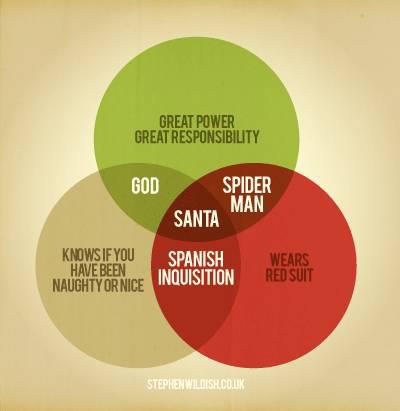
Point 1: Reasonable reverence (and this is TRUE) actually makes the differences between Theists, Deists, Pantheists, and Athiests irrelevant.
Point 2: The current trend towards being ‘spiritual but not religious’ is thoroughly understandable and justifiable, but it is likely to be unproductive. Why? Because it is an individualizing response to the abuses that have occurred, and often still are occurring, in organized religion. And the problem with that is there are massive benefits to individuals that are then lost by thus de-collectivizing the spiritual process. Please don’t misunderstand this; it is true that finding deep Meaning and connection to that which is transcendentally greater is, ultimately, a personal and individual phenomena, but like it or not we humans are similar and social enough beings that the process is commonly much easier if we help one another. And that’s what religion should be all about.
The problem is that religion is easily corrupted, but rather then throwing the proverbial baby out with the bath water, we merely have to do a better job of examining why it becomes corrupted, and be better at spotting the patterns that lead to corruption. There is much growth that can occur in such an endeavor. Indeed . . .Paltrorks is a word that was coined in the novel, ‘The Sky Clad Sages,’ that allows one to focus on and identify the root of the problem, and therefore resolve it before it becomes entrenched. Paltrorks, simply, refers to a deep animal tendency in our species to have patriarchal tribal alpha dorkish males gain control of culture, and in religion (which is supposed to be primarily about the ego achieving transcendent connection to that which is greater) clear signs that paltrorks is happening is when men insist on controlling the religion, conformity through fear is emphasized, and the non-empathetic control of sexuality, primarily women’s sexuality, becomes a bizarrely central topic. You might say, “well that’s all religion,” but consider the difference between religious figures such as St. Francis and Osama Bin Laden. Now of course St.Francis was still a man, and there are few noteworthy female religious figures, deities, metaphors , or myths, but that would be a more productive area for change then destroying religion. . .
(In order to even talk about religious differences we need to discus the word religion. For many people ‘religion’ has become something of a dirty word, in part because quite often the desire to find religious unity has been a root cause of repression and suffering. Indeed, many people often equate religious doctrines with delusional dogma that is foisted on the public for the sole purpose of causing conformity that can then be controlled. But the core impulse for religion is a healthy one: it is to find Meaning by transcending our own egos, and to use that meaning as a part of basis for the social cohesion that is necessary for humans to work together synergistically. The problem is that there is a huge natural impulse for people to hijack the process to either dishonestly elevate their status in society, their ego, or both.)
Related posts and links:
See Hitchens on God here, and see him on how much of ‘religious’ behavior, perhaps even the essence of monotheistic messianic religions, is death oriented here.
http://www.youtube.com/watch?v=7nIRJVmZ4K8&feature=related
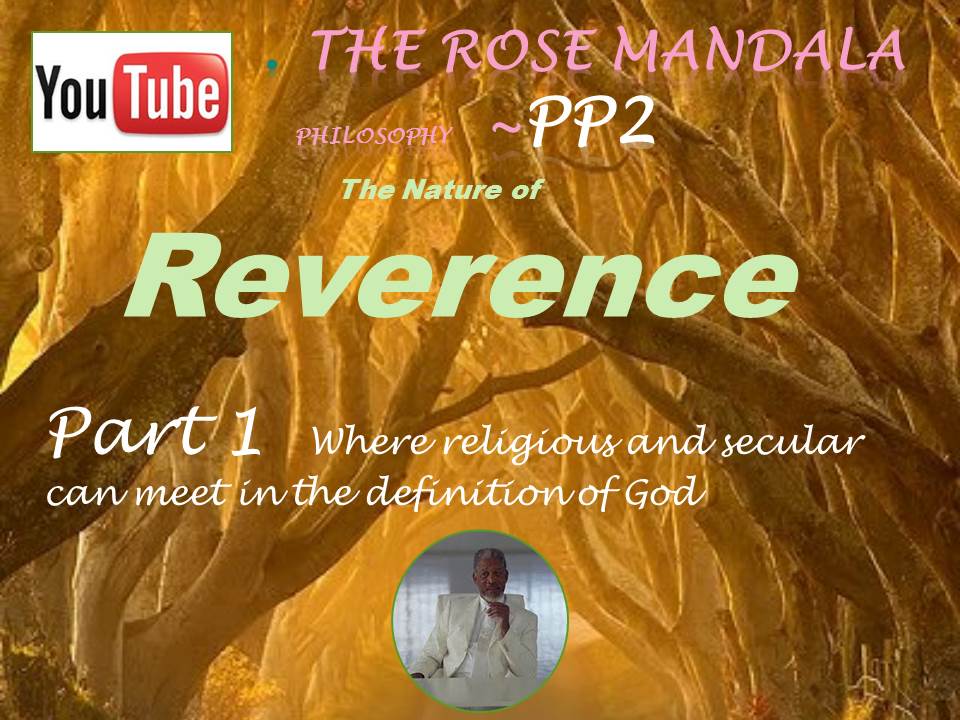

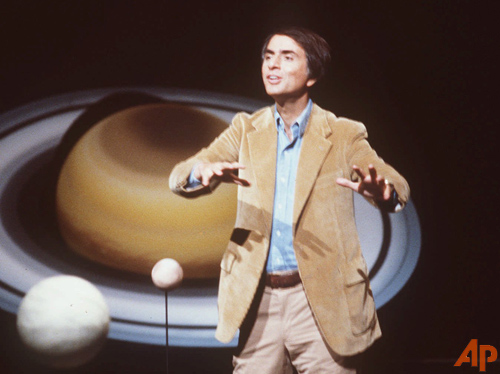
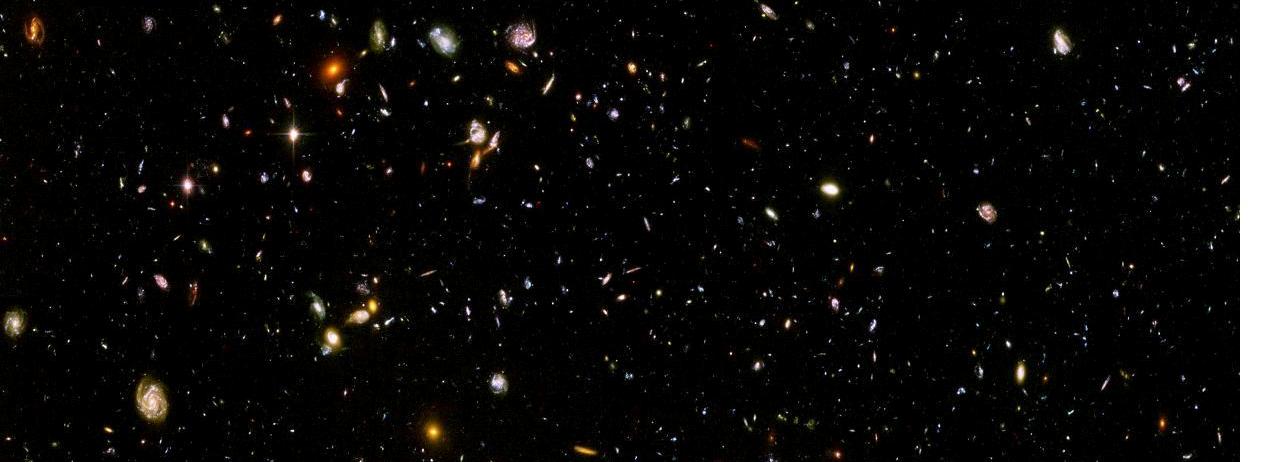

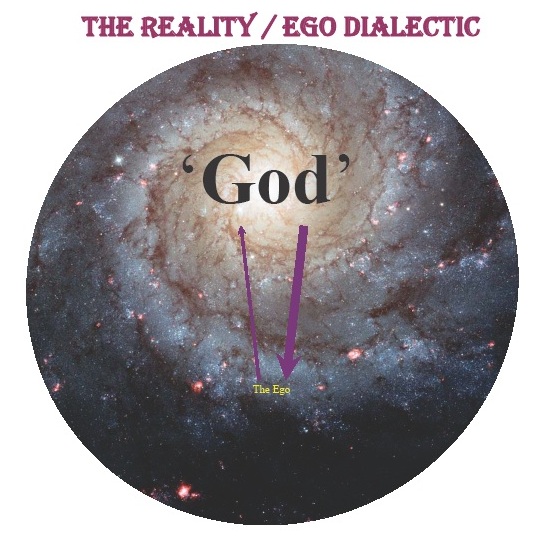
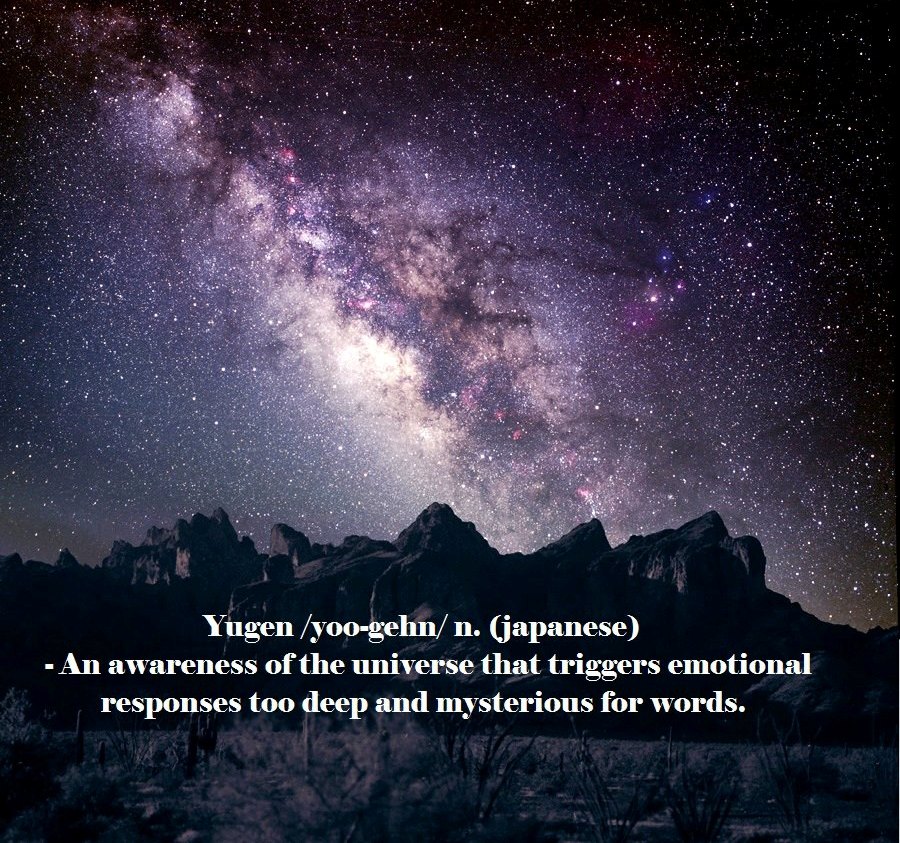






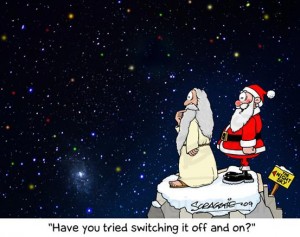


I’m amazed by the wisdom in this blog post I found it to be more than extremely interesting but it also made me think. It is difficult now a days to locate related information to ones search, so I am happy that I found this blog post